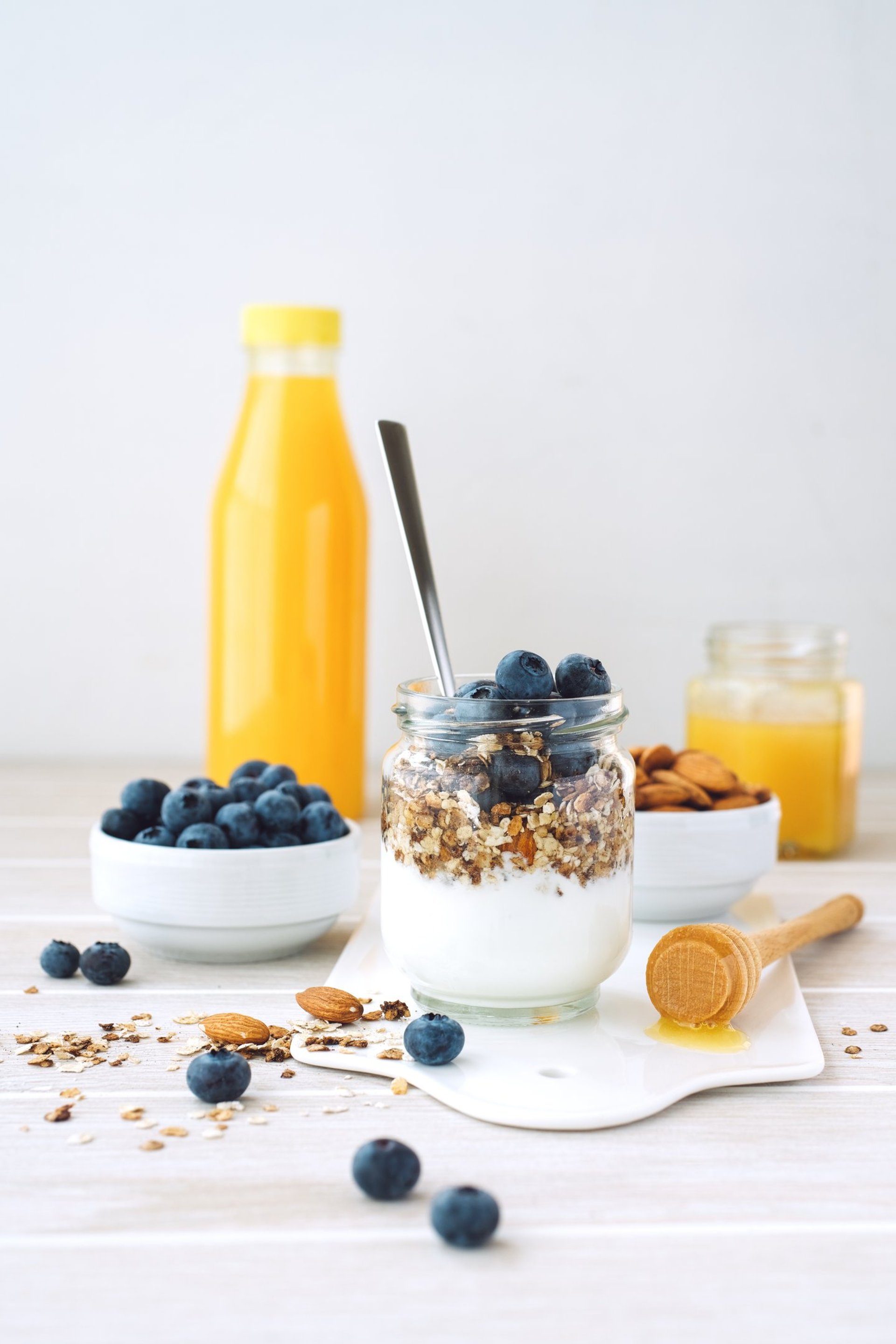
The Health Benefits of Regular Smoothie Consumption
Boost Your Wellness with Fruit-Powered Nutrition and Diverse Smoothie Ingredients
NUTRITION BLOG
alex somsky
5/8/20245 min read
Smoothies have become a staple in many health-conscious diets, praised for their versatility, convenience, and ability to deliver a powerful punch of nutrients in a single glass.
With countless fruit combinations and base options, smoothies can be customized to support a variety of health needs, including considerations for individuals with chronic conditions.
From fresh fruits and nutritious bases like yoghurt, Caucas kefir or Middle Rast laban, through non-dairy almond and coconut milks to health-enhancing additions like herbs, spices, and grains, the possibilities are endless. In this article, we'll dive into the health benefits of smoothies, recommended ingredients, and special tips for those managing specific health issues.
1. The Health Benefits of Different Fruits in Smoothies
Fruits are the foundation of most smoothies, providing essential vitamins, antioxidants, and fibre. Here’s a closer
look at the benefits of popular fruits you can incorporate into your smoothie routine:
Berries (Strawberries, Blueberries, Raspberries)
Berries are nutrient-dense and rich in antioxidants that support heart health and immune function. They also have a low glycemic index, making them a great choice for people who need to monitor blood sugar levels. Berries pair well with bases like coconut milk or almond milk, creating a creamy, nutritious smoothie.
Tropical Fruits (Mango, Pineapple, Papaya)
Tropical fruits bring a burst of flavour and a high dose of vitamins C and A, beneficial for skin, immunity, and eye health. Additionally, pineapple and papaya contain enzymes (bromelain and papain, respectively) that aid in digestion. These fruits blend wonderfully with coconut milk for a tropical-inspired smoothie.
Bananas
Bananas are high in potassium and fibre, which support cardiovascular and digestive health. They also add natural sweetness and creaminess to smoothies, reducing the need for additional sweeteners. Bananas are a good base for smoothies when paired with almond or oat milk.
Stone Fruits (Peaches, Plums, Cherries)
Stone fruits are high in vitamins and antioxidants, and cherries in particular are known for their anti-inflammatory properties. They can be enjoyed with almost any base and add a bright flavour to smoothies.
Citrus Fruits (Oranges, Lemons, Grapefruits)
Citrus fruits are a great source of vitamin C, which boosts immune function and skin health. However, those with sensitive stomachs or ulcers may want to limit acidic fruits and consider pairing them with soothing bases like almond milk.


2. Exploring Smoothie Bases and Their Health Benefits
Choosing the right base for your smoothie is crucial for both flavor and nutrition. Here are some popular options and their unique benefits:
Dairy-Based Options
Yoghurt: A versatile dairy product, yoghurt is packed with probiotics, which support digestive health. It's high in protein and calcium, making it a nutritious choice. Yoghurt works well in smoothies, adding a creamy texture and mild tang that pairs well with both sweet and savoury ingredients. Options like Greek yoghurt are especially thick and protein-rich.
Kefir: Rich in probiotics, kefir promotes gut health and is high in calcium and protein. It’s a great choice for a creamy, tangy smoothie, though those with lactose intolerance may need to monitor their tolerance.
Laban: This Middle Eastern buttermilk is also probiotic-rich and provides calcium and protein. It’s thick and tangy, blending well with tropical fruits or berries.
Non-Dairy and Vegan Options
Almond Milk: Low in calories and free from lactose, almond milk is a popular dairy-free choice. It’s rich in vitamin E, beneficial for skin and heart health, and pairs well with bananas, berries, or stone fruits.
Coconut Milk: Coconut milk adds a creamy texture and contains healthy fats (MCTs), which may aid in energy levels and satiety. It’s excellent for tropical smoothies but should be consumed in moderation by those with gallbladder or liver issues.
Oat Milk: Naturally sweet and high in fiber, oat milk is gentle on the stomach and supports heart health. It’s a good choice for those avoiding lactose or dairy.
Soy Milk: High in protein, soy milk is nutritionally comparable to cow’s milk and contains isoflavones that may support hormone balance. Choose non-GMO, unsweetened varieties to avoid added sugars.
3. Enhancing Smoothies with Herbs, Spices, and Grains
Adding herbs, spices, and grains can elevate the nutritional profile of your smoothies and add complexity to their flavors.
Herbs
Mint: Refreshing and aids digestion, mint pairs well with berries and tropical fruits.
Basil: Anti-inflammatory, with a unique flavor that complements strawberries and mango.
Chamomile: Known for its calming effects, chamomile can be brewed and added to smoothies
for a soothing effect.
Parsley and Cilantro: Rich in antioxidants, these herbs support detoxification and work well in green
smoothies.
Spices
Curcumin (Turmeric): Known for its anti-inflammatory properties, turmeric is a powerful addition to smoothies. Its earthy flavor pairs well with coconut milk.
Ginger: Anti-inflammatory and digestive aid, ginger adds a warming, spicy flavor to smoothies.
Cinnamon: Helps regulate blood sugar and adds a sweet, cozy flavor to smoothies with banana or apple.
Grains and Seeds
Chia Seeds: High in fiber and omega-3s, chia seeds are excellent for satiety and digestive health.
Sunflower Seeds: Rich in vitamin E and healthy fats, they support skin health.
Walnuts: Packed with omega-3s, walnuts are great for brain health.
Flaxseeds: High in fiber and beneficial for hormone balance, they also provide a dose of healthy fats.


4. How Smoothies Can Support Specific Health Conditions
Smoothies can be tailored to meet the needs of people with specific health conditions. Here’s how to make smoothies supportive for various chronic health concerns:
Diabetes
For individuals with diabetes, it’s essential to choose low-glycemic fruits like berries and apples and avoid added sugars. Adding fiber-rich ingredients like chia seeds and spices like cinnamon can help stabilize blood sugar levels. Unsweetened almond milk or oat milk are ideal bases.
Digestive System Problems (IBS, Bloating)
Those with digestive issues can benefit from probiotics in kefir or yogurt, which support gut health. Low-acid fruits like bananas and papaya are gentler on the digestive tract, and fiber from chia or flaxseeds promotes regularity.
Ulcers
People with ulcers should focus on non-acidic fruits (like bananas) and soothing bases (like coconut milk or yogurt). Herbs like chamomile and lemon balm can be added for their calming effects, and ginger should be used sparingly due to its strong flavor.
Gallbladder Issues
For those with gallbladder problems, low-fat bases like almond milk are recommended. Avoid high-fat ingredients, but small amounts of MCTs (from coconut milk) may be tolerated. Low-glycemic fruits and mild spices like cinnamon are good additions.
Liver Health
Antioxidant-rich fruits like berries and herbs like parsley support liver detoxification. Almond milk and oat milk provide a low-fat base, and limiting added sugars is key. Avoid high-fat ingredients and choose liver-supportive additions like cilantro.
Kidney Health
For individuals with kidney issues, it’s important to limit high-potassium fruits like bananas. Berries, apples, and grapes are lower in potassium and safer choices. Avoid high-protein bases like kefir, and opt for almond or coconut milk instead.
5. Tips for Making Health-Optimized Smoothies
Incorporating Fiber for Satiety and Digestive Health
Adding ingredients like chia seeds, flaxseeds, and oats increases fiber content, which helps stabilize blood sugar and supports gut health.
Adding Healthy Fats for Balanced Nutrition
Including small amounts of healthy fats like walnuts or sunflower seeds can help with nutrient absorption. However, people with liver or gallbladder issues should monitor their intake of high-fat ingredients.
Balancing Flavors with Herbs and Spices
Herbs like mint and basil, along with spices like ginger and cinnamon, add complexity and can enhance the sweetness of smoothies without added sugar.
Using Natural Sweeteners Wisely
Using whole fruits as natural sweeteners is better than adding honey or syrups, especially for those managing blood sugar. Spices and herbs can also enhance sweetness.
Conclusion
Smoothies offer a delicious and versatile way to enhance your daily nutrition.
By carefully selecting fruits, bases, herbs, spices, and grains, you can tailor smoothies to support your unique health needs, from heart health to digestive wellness.
Experiment with different ingredients to find your favorite combinations and enjoy the benefits of nutrient-packed smoothies in your daily diet.
